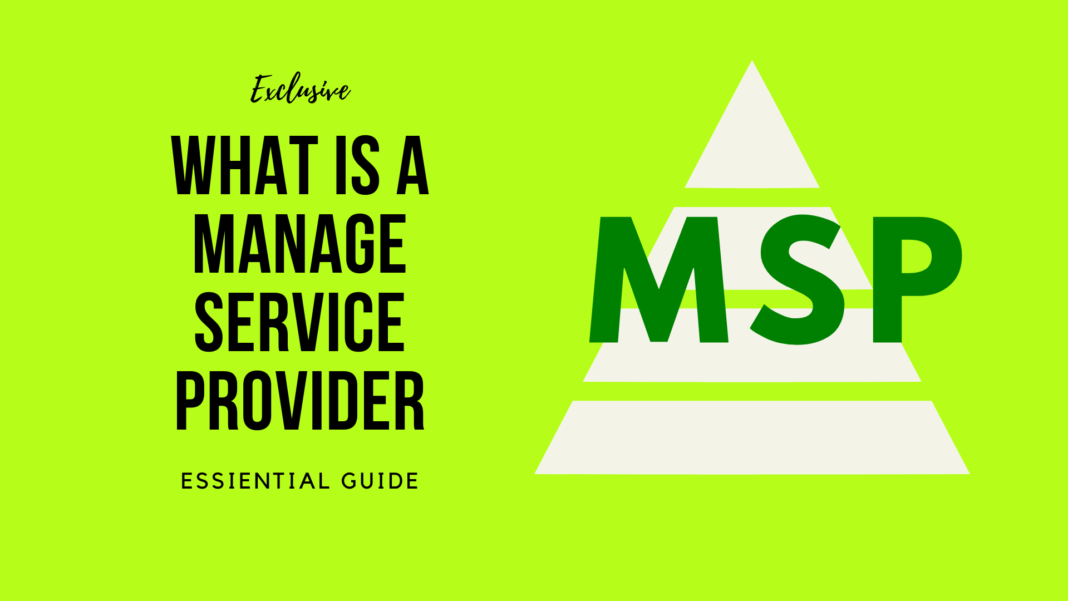What is a managed service provider?
A managed service provider is a technology firm that specializes in designing, implementing, and managing IT solutions. This can include cloud-based solutions, data center solutions, and premises solutions. These IT solutions are designed to help businesses gain efficiency, lower costs, and improve performance. A managed service provider can help businesses with many IT needs, including cybersecurity and data protection. These managed services providers also provide complete technical expertise and round-the-clock support to ensure that your information technology needs can be met.
What are Managed Service Providers Used for?
Small and medium businesses typically hire managed service providers (MSPs) to provide IT support. They can also be hired by large companies that don’t have the resources to manage their own IT departments.
An MSP can do everything from installing new software to monitoring your network security and backing up your data. Some even offer 24/7 support services to never worry about downtime. MSPs are similar to cloud providers in that they offer a set of managed services that you don’t need to manage yourself. But unlike a cloud provider, an MSP takes care of all the details on your behalf, so there’s no need for you to learn how to use complex software or hardware solutions.
Why Should Businesses Use Managed Service Providers?
After addressing the initial issue, what is a managed service provider writeup? At this point, firms must determine why they require such services. Managed service providers are IT companies that provide various services to businesses. These include basic IT support, desktop support, server maintenance, and other IT-related tasks. Managed service providers also offer several benefits that include:
Save Money
A managed service provider can help you save money by reducing the amount of time your employees spend on IT issues. This will free up staff for other tasks in your business. It will also reduce the amount of equipment you need because they’ll handle all the maintenance on your computers and servers. The more time and effort they spend on these tasks, the less time they have to charge you.
Security
A managed service provider can help keep your business safe from cyber threats by monitoring your network for intrusions and providing security updates. They can also monitor your employees’ use of social media so you know when they’re putting confidential information at risk.
Improved Efficiency
When an MSP takes over the management of your IT infrastructure, it frees up resources for your employees to focus on other tasks that are more important for the business’s success. You also don’t need to worry about finding replacements when employees leave because there’s no shortage of qualified applicants who want to join an MSP team.
Professional Expertise
An MSP has more experience than most small businesses in managing technology. They know how to set up and manage networks, security systems, and other technology platforms that run 24/7 — something many small businesses don’t have employees dedicated to doing full-time right now. An MSP can also help you determine which piece of equipment is right for your business needs.
Types of MSPs Services?
Cloud Computing
Some MSPs use cloud-based platforms to manage clients’ networks remotely. These MSPs are often considered the most efficient and scalable, as they can easily add new clients without needing to expand their physical infrastructure. However, some MSPs prefer to keep some or all of their services on-site.
Managed Security Solutions
Most managed service providers offer security solutions such as antivirus software, firewalls, and intrusion detection systems. This type of service is often bundled with other managed IT services to create a comprehensive managed security solution for businesses.
Business Continuity Management (BCM)
This type of service includes disaster recovery plans and business continuity solutions that help businesses recover from major disasters or outages to resume normal operations quickly and efficiently without disrupting customer relations or losing vital data or assets.
IT Asset Management
This type of service includes inventory management software. This software is used for tracking all IT equipment across an organization’s network to find any issues before they affect users’ productivity or cause downtime.
Helpdesk Support
Helpdesk MSPs offer basic technical assistance to clients via phone or email. Some helpdesk providers only provide phone support for specific issues like password resets or account access problems. Other helpdesk providers offer more comprehensive services, such as monitoring systems for security breaches or responding to major incidents like malware infections or site outages.
Bottom Line
Technically, this article answers the question, what is a managed service provider writeup? Like the best of all worlds, a managed service provider is simply an outsourcing solution that protects your IT investment and provides you with technical support resources such as 24/7 monitoring, backup, and security management. Therefore, it’s recommended for any small business that can’t afford to hire full-time IT staff or needs support for its network infrastructure.
























































